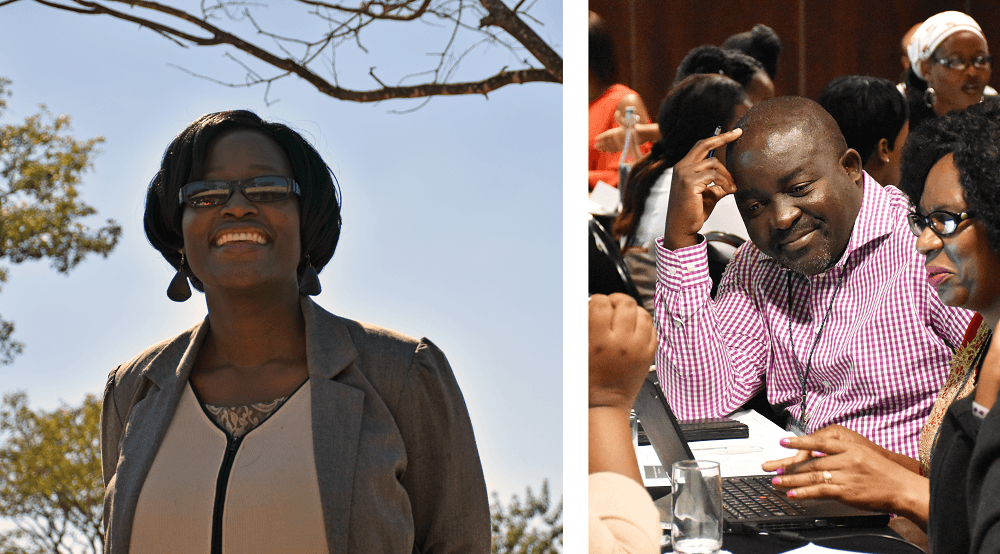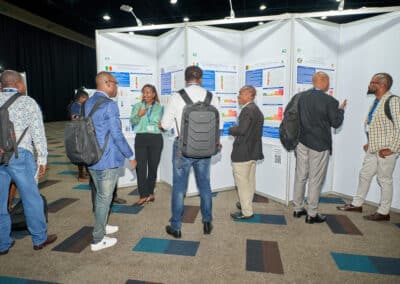Scaling up differentiated service delivery (DSD) requires rigorous planning and innovative solutions to ensure provision of high-quality services for people living with HIV. National DSD coordinators are on the front lines of service delivery. They help spearhead planning, training, and tool development that will increase program reach to benefit more people over wider geographical areas.
In February 2018, the HIV Coverage, Quality, and Impact Network (CQUIN) launched an online DSD community of practice (CoP) designed to support DSD coordinators. Part of CQUIN’s diverse portfolio of activities to accelerate DSD scale-up, the CoP consists of ministry of health staff and DSD coordinators from 10 countries. Members meet twice a month to share ideas on planning activities, discuss solutions to common challenges, and exchange tools and resources.
“The forum helped Zambia draft its DSD scale-up plan,” said Peter Preko, MBChB, MPH, CQUIN’s project director, who provides technical support and supervision to the community for key activities. “Uganda also shared a patient satisfaction survey tool with the DSD focal persons to help those planning similar surveys in their countries. This virtual CoP provides opportunities for peer-to-peer learning, idea exchange, and review of country-plans and evolving tools and documents. CQUIN also uses the forum to provide timely updates on planning activities, get inputs from the network’s country representatives, and mentor young leaders.”
“The CoP has helped me be conscious of the fact that you can always do more,” said Clorata Gwanzura, MBChB, MPH, the differentiated care medical officer at the Zimbabwe Ministry of Health and Child Care AIDS, TB, and STI Program. “Receiving updates from others in the group makes you look at your work from another angle, and helps you improve,” added Dr. Gwanzura, who is responsible for establishing a national DSD sub-technical working group; engaging and orienting provinces and stakeholders; and supervising DSD implementation in the country.
In October 2017, CQUIN seconded Hervé Kambale, MD, MPhil, to Eswatini’s National AIDS Programme (SNAP) as a DSD technical advisor to support planning and coordination of DSD at the Ministry of Health. Dr. Kambale has worked closely with SNAP, PEPFAR and its implementing partners, and civil society to strengthen, generate demand for, and increase enrollment in DSD models for patients on ART, including key populations, such as men who have sex with men and people who inject drugs.
“Eswatini’s goal is to increase DSD coverage from 16 to 45 percent by the end of 2018,” said Dr. Kambale. “We’re encouraging health facilities to implement DSD models like teen clubs and fast-track. We’re also advocating for support from our local partners such as the World Health Organization, who have helped us print DSD registers, create materials for meetings, and support training and curriculum development.”
Learn more about how CQUIN support is helping advance DSD in Zimbabwe
Learn more about DSD in Eswatini
This story is part of a series focused on the evolution of the CQUIN network, and countries’ progress in improving differentiated service delivery. To follow this story and others, sign up for the network’s monthly newsletter.






